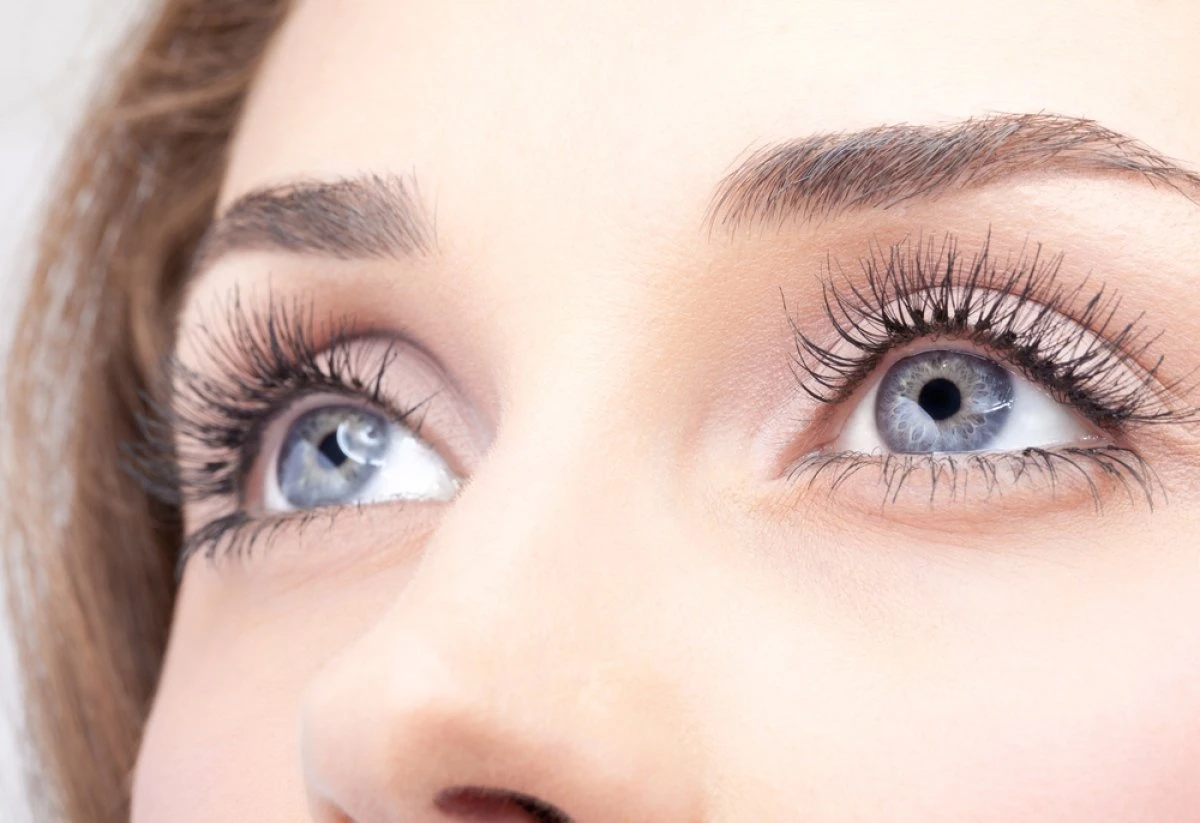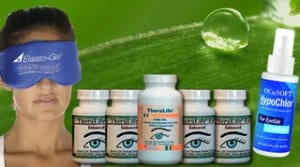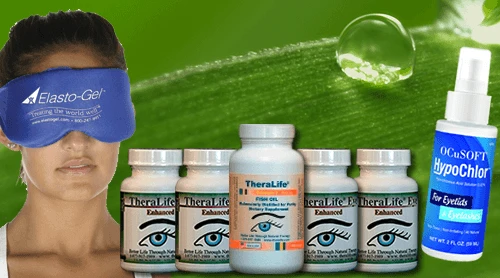If you’re experiencing watery eyes while wearing glasses, it might be due to dry eye syndrome, allergies, or improper lens fit. TheraLife’s products offer effective solutions for managing these symptoms. TheraLife specializes in natural treatments that address a variety of eye conditions, including dry eyes and blepharitis, without relying solely on traditional medications.
For those suffering from dry eye syndrome, TheraLife’s Eye Enhanced oral supplements provide a comprehensive approach by promoting natural tear production and reducing inflammation from inside out. This can alleviate the discomfort of dry eyes and reduce the excessive tearing that comes with it.
In cases of allergies, TheraLife offers solutions that help manage symptoms without the drowsiness associated with antihistamines. Their products focus on reducing inflammation and stabilizing the cells that release histamine, thus providing relief.
Additionally, TheraLife’s emphasis on a proper diet and lifestyle adjustments can enhance the effectiveness of their products, making them a holistic choice for eye care. Their supplements are designed to support the overall health of the eyes, which can be particularly beneficial for those living in environments that exacerbate dry eye symptoms.
For persistent issues like blocked tear ducts (MGD) or recurrent chalazions, TheraLife recommends professional consultation, as these may require more targeted interventions.
By understanding the underlying causes of watery eyes and implementing TheraLife’s natural solutions, you can manage symptoms effectively and improve your eye health.
Stop Watery Eyes With All Natural Oral Treatment That Works
Add To Cart
Key Takeaways
Theralife.com offers a range of products that provide significant benefits to customers experiencing watery eyes while wearing glasses. These products are designed to address common causes such as allergies, irritants, and Dry Eye Syndrome. Theralife’s solutions can help reduce inflammation and excessive tearing, allowing glasses wearers to experience relief. Regular use of Theralife’s products, such as anti-inflammatory supplements and natural tear production enhancers, can improve eye comfort by minimizing irritation and strain. Additionally, for those affected by environmental factors, Theralife provides targeted treatments that can alleviate symptoms effectively. With the inclusion of natural ingredients and a focus on holistic eye care, Theralife products offer a comprehensive approach to managing watery eyes for glasses wearers.
Causes of Watery Eyes
If you’re experiencing watery eyes, understanding the underlying causes is essential for effective management. Watery eyes, or epiphora, can stem from several conditions. One primary cause is dry eye syndrome, where insufficient moisture triggers excessive tear production as a compensatory mechanism. This paradoxical situation results in the very discomfort it attempts to alleviate.
Allergies are another significant factor. Environmental triggers like pollen or dust can inflame your eyes, leading to increased tear production. This response is your body’s way of trying to flush out the irritants.
Similarly, eye infections, such as conjunctivitis, involve inflammation of the conjunctiva, causing redness, discharge, and importantly, watery eyes.
Blocked tear ducts present another cause of watery eyes. When tears can’t drain properly due to inflammation or congenital issues, they accumulate and overflow. This blockage can lead to persistent tear overflow despite normal tear production levels.
Eyelid problems like entropion (inward-turning eyelid) or ectropion (outward-turning eyelid) also disrupt normal tear drainage. These conditions prevent tears from flowing out efficiently, resulting in excessive tearing.
Understanding these causes assists in identifying the appropriate interventions and managing the discomfort associated with watery eyes effectively.
Fixes for Tear Overproduction
Addressing watery eyes involves understanding not only the causes but also effective strategies for managing tear overproduction. One important step is to identify and avoid triggers such as allergens and irritants, which are common causes for watery eyes. These can often be minimized by adjusting your environment.
If allergies are a possible cause, over-the-counter antihistamines can be helpful. They block histamine release, reducing excessive tearing.
For those experiencing dry eyes, regular lubrication with artificial tears is essential. These eye drops act as a supplement to natural tears, keeping your eyes comfortable and reducing compensatory tear production.
If dryness persists despite regular lubrication, consulting an eye doctor is advisable. They might prescribe stronger, condition-specific eye drops, guaranteeing your symptoms are effectively treated with eye drops tailored to your needs.
In some cases, blocked tear ducts might be contributing to tear overproduction. Here, surgical intervention for blocked ducts can be considered. This minor procedure helps restore normal tear drainage and alleviate chronic symptoms.
If you wear contact lenses, maintain proper hygiene and fit, as these are additional possible causes of irritation and watery eyes. Regular consultation with an eye doctor can help tailor a treatment plan to your specific needs.
Eye Care With Glasses
Wearing glasses with the correct prescription is essential for maintaining ideal eye comfort and health. Poorly corrected vision can lead to eye strain and cause your eyes to work overtime, resulting in watery eyes as a natural response. Regular eye examinations guarantee your prescription is accurate, alleviating symptoms like tearing due to vision problems.
Proper lens care is vital for peak eye health. Clean your glasses regularly to remove smudges and scratches, which can impede visual clarity and irritate your eyes, potentially leading to excessive watering.
Consider glasses with adaptive lenses or anti-reflective coatings to minimize glare from screens and bright lights. These features reduce eye strain and help prevent tears from forming excessively.
The fit of your glasses also matters. Make sure your glasses sit comfortably on your nose and ears to avoid discomfort. Misfitting glasses can rub and irritate your eyes, causing them to tear up.
Adjusting your glasses properly can prevent such issues, enhancing both comfort and eye health. By taking these measures, you can effectively manage watery eyes and maintain the overall health of your eyes with glasses.
Home Remedies for Relief
Managing watery eyes involves more than just proper eyewear care; home remedies can also provide effective relief. A common cause of eye watering is blocked tear ducts. Applying a warm compress over your eyes can help unclog these ducts, consequently alleviating excessive tearing.
If your eyes produce too much tear due to inflammation or irritation, a cold compress can quickly reduce inflammation and soothe discomfort.
Eye hygiene is vital in preventing watery eyes. Regularly cleaning your eyelids with a gentle scrub or diluted baby shampoo can prevent irritation and reduce the risk of infections. These practices are essential for maintaining healthy tear production and minimizing eye watering episodes.
Hydration plays an important role in managing watery eyes. By drinking plenty of water throughout the day, you support your body’s natural tear production, which can help treat watery eyes and combat symptoms of dry eye.
Lastly, consider dietary adjustments. Incorporating omega-3 fatty acids from sources like fish, walnuts, and flaxseeds can boost overall eye moisture and support healthy tear production.
These practical home remedies target the common causes of watery eyes, offering relief and promoting long-term eye comfort.
When to Consult a Professional
If you’ve tried home remedies and lifestyle changes but your watery eyes persist, it’s time to consult a professional. An optometrist or ophthalmologist can identify the causes of your discomfort. Persistent watery eyes may indicate underlying issues like allergies, pink eye, or dry eye syndrome, which affect the surface of the eye. It’s vital to get a professional evaluation, especially if you notice redness, pain, or vision changes.
Consider the following when deciding to consult a professional:
| Symptom | Possible Condition | Action Needed |
|---|---|---|
| Chronic tearing | Allergies | Seek allergy treatments |
| Redness and pain | Pink eye | Immediate consultation |
| Vision changes | Various causes | thorough eye exam |
| Dryness and itchiness | Dry eye syndrome | Explore medical treatments |
| No improvement | Unknown | Professional evaluation |
A professional can recommend specific treatments or surgical options tailored to your condition. Regular eye exams are key for early detection of vision problems that might cause excessive tearing. If your symptoms interfere with daily activities, it’s important to determine the underlying cause. Don’t delay seeking help, as timely intervention can prevent potential complications and improve your quality of life.
Frequently Asked Questions
Can Watery Eyes Be Fixed?
You can fix watery eyes by addressing causes like contact lenses discomfort, environmental factors, or allergic reactions.
Eye infections and eyelid issues might require medical attention. Proper hydration supports tear production, reducing excessive tearing.
Managing eye strain through regular breaks can also help. Regularly consult an eye specialist to rule out conditions and receive tailored advice.
With appropriate treatment, you’ll often find relief from persistent watery eyes.
What Causes Watery Eyes When Wearing Glasses?
Ever wondered why your eyes water when you wear glasses?
It’s often due to improper glasses fit, unsuitable lens material, or even eye strain from prescription issues. Allergy triggers like dust can also play a role, especially if trapped on lenses.
A dry climate can exacerbate tear production. Additionally, your facial structure might cause frames to sit incorrectly, adding to discomfort.
Ensuring proper fit and material can alleviate these issues.
What Deficiency Causes Watery Eyes?
You’re likely experiencing watery eyes due to nutritional deficiencies.
A lack of vitamin A can lead to dry eyes and excessive tearing. Omega-3 deficiency may contribute to irritation and increased tear production. Zinc deficiency impacts overall eye health.
Dehydration effects can prompt overproduction of tears. Environmental factors and allergy triggers might exacerbate symptoms.
Guarantee a balanced diet to maintain eye health and alleviate watery eyes effectively.
How Do I Get My Eyes to Stop Being Watery?
To stop your eyes from being watery, first assess allergy relief by using antihistamine eye drops.
Consider environmental factors like pollen and smoke and adjust your surroundings.
Maintain proper hydration levels and check if your lens fit is correct.
Seasonal changes might require different eye care routines.
Practice good eyelid hygiene and minimize digital strain with regular breaks.
If symptoms persist, consult a professional for tailored advice.
Conclusion
In the blink of an eye, you can address excessive tear production by leveraging the benefits of TheraLife’s products. TheraLife offers a range of natural solutions designed to tackle chronic eye conditions like blepharitis, dry eyes, and uveitis. Their products are formulated to provide relief by improving tear quality and reducing inflammation, making them a comprehensive alternative to traditional treatments.
Start with ensuring your glasses fit properly, and complement this with TheraLife’s prescribed eye drops and supplements. Additionally, natural remedies such as warm compresses can be effective. Should your eyes continue to be problematic, consult a healthcare professional for personalized advice. With TheraLife’s offerings, you can significantly improve eye comfort and enjoy clearer vision.





